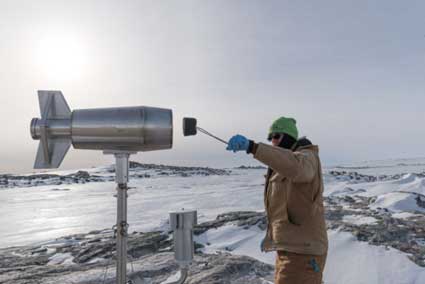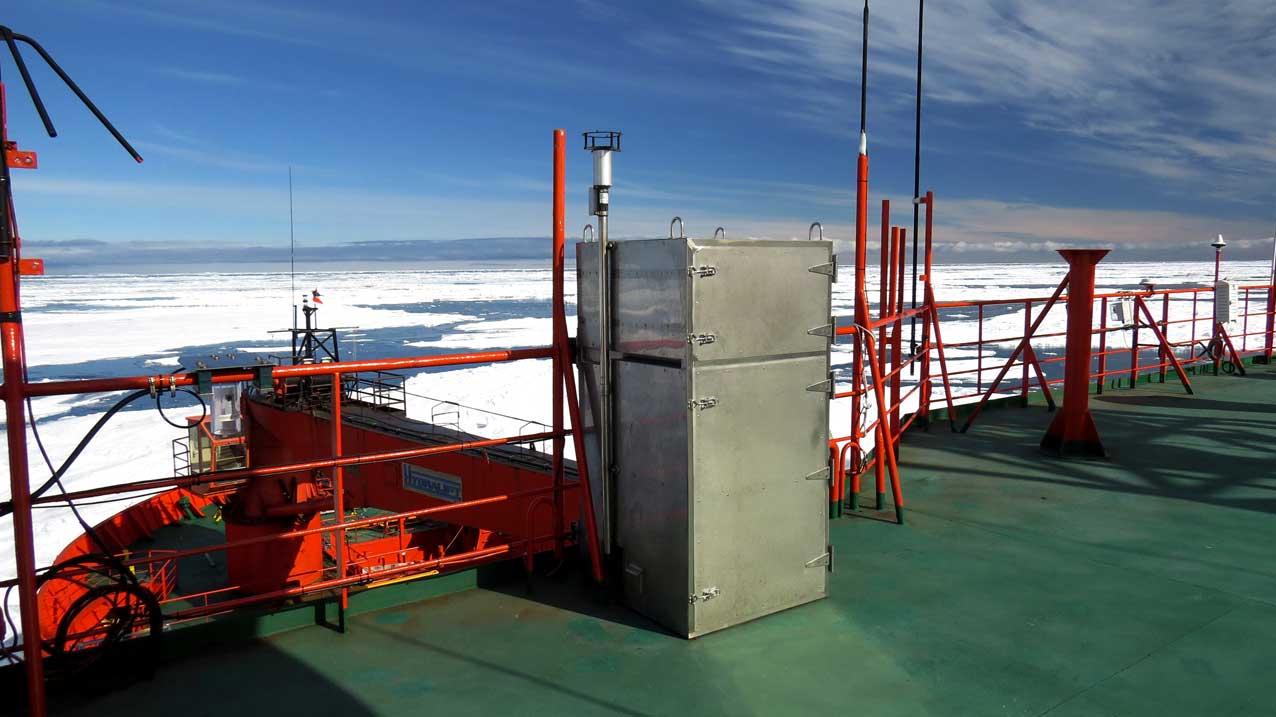The purpose of this working group is to facilitate coordinated investigation and monitoring of chemical input to the Antarctic region. The Action Group will draw together the Antarctic POP research community in order to devise a long-term coordination body, and underpinning funding strategy, for realising Action Group goals.

ImPACT (persistent organic pollutants)
About
The ImPACT Action Group aims to facilitate coordinated investigation of chemical input to the Antarctic region. This is a policy-driven Action Group which serves both the Global Monitoring Plan of the Stockholm Convention on Persistent Organic Pollutants (POPs), as well as the Protocol on Environmental Protection to the Antarctic Treaty (the Madrid Protocol), which explicitly prohibits the importation of chemicals of known risk to Antarctica.
 Persistent Organic Pollutants (POPs) are ubiquitous, toxic, environmental contaminants that have been released through global industry over the past century. Polar Regions act as environmental “sinks” for POPs, which reach these high latitude environments through long-range environmental transport processes, as well as in situ usage.
Persistent Organic Pollutants (POPs) are ubiquitous, toxic, environmental contaminants that have been released through global industry over the past century. Polar Regions act as environmental “sinks” for POPs, which reach these high latitude environments through long-range environmental transport processes, as well as in situ usage.
Today the field of Antarctic POP research faces the challenge of quantifying and forecasting the impact of POP contamination in the region, in the absence of a robust understanding of past or present contaminant input. With 1 million new chemicals registered each year globally, both the magnitude and diversity of chemical contamination reaching the continent are increasing rapidly. This Action Group will target co-ordinated monitoring of four known chemical input pathways:
- Atmospheric transport
- Hydrospheric transport
- In-situ usage
- Migratory biota

The Action Group will specifically focus on the following objectives:
- Co-ordinate current and ongoing research efforts aligned with the Action Group terms of reference, ensuring data collected meets minimum quality assurance requirements for temporal trend collation.
- Pursue national and multi-national funding strategies for establishment of permanent atmospheric monitoring stations at multiple sites across the continent.
- Publish collaborative synthesis works arising from coordinated monitoring efforts.
- Identify avenues for scaffolding of the ImPACT Action Group towards establishment of an Antarctic Monitoring and Assessment Programme (AnMAP) body.
Members
Contact
The Chairs of ImPACT are Simonetta Corsolini and Zhiyong Xie.
Membership
| Member | Institute | Country |
| Susan Bengtson Nash | Griffith University | Australia |
| Catherine King | Australian Antarctic Division | |
| Michaela Lerch | Griffith University | |
| Sergey Kakareka | National Academy of Sciences | Belarus |
| Alexander Mangold | Royal Meteorological Institute of Belgium | Belgium |
| Nadine Mattiel | Université Libre de Bruxelles | |
| Christophe Walgraeve | Ghent University | |
| Caio Cipro | University of Sao Paolo | Brazil |
| Rosalinda Montone | University of Sao Paolo | |
| Tom Harner | Environment Canada | Canada |
| Cristobal Galban-Malagon | Universidad Andres Bello | Chile |
| Qinghua Zhang | Chinese Academy of Sciences | China |
| Olivier Chastel | French National Center for Scientific Research | France |
| Matthias Brenner | Alfred Wegener Institute | Germany |
| Ralf Ebinghaus | Institute of Coastal Environmental Chemistry, Helmholtz-Zentrum Hereon | |
| Anette Küster | German Environment Agency | |
| Zhiyong Xie (co-Chair) | Institute of Coastal Environmental Chemistry, Helmholtz-Zentrum Hereon | |
| Anoop Tiwari | National Centre for Polar and Ocean Research | India |
| Nicoletta Ademollo | Italian National Research Council | Italy |
| Alessandra Cincinelli | University of Florence | |
| Simonetta Corsolini (Chair) | University of Siena | |
| Roger Fuoco | University of Pisa | |
| Stefania Giannarelli | University of Pisa | |
| Marco Grotti | University of Genova | |
| Emanuele Magi | University of Genova | |
| Jung-Ho Kang | Korea Polar Research Institute | Korea |
| JungKeun Oh | Korean National Institute of Environmental Research (National Environmental Specimen Bank) | |
| Nico van den Brink | Wageningen University and Research | Netherlands |
| Pernilla Bohlin-Nizzetto (co-Chair) | Norwegian Institute for Air Research | Norway |
| Żaneta Polkowska | Gdansk University of Technology | Poland |
| Małgorzata Szopińska | Gdansk University of Technology | |
| Ana Cabrerizo | Institute for Environmental Assessment and Water Research | Spain |
| Jordi Dachs | Institute for Environmental Assessment and Water Research | |
| Begona Jimenez | Spanish National Research Council | |
| Maria Vila | Institute for Environmental Assessment and Water Research | |
| Atilla Yilmaz | Tubitak Marmara Research Center | Türkiye |
| Rainer Lohmann | University of Rhode Island | USA |
| Natalia Barboza | Uruguay National Environmental Protection Agency | Uruguay |
| Andres Perez | Universidad de la República | |
| Franco Teixeira de Mello | Universidad de la República | |
| Natalia Venturini | Universidad de la República |
News
News and Updates from the persistent organic pollutants research community.
ImPACT|
New IMPACT Group Publication
The SCAR Input Pathways of Persistent Organic Pollutants to Antarctica (ImPACT) Action …
ImPACT|
ImPACT group publication on seabirds as a source of pollutants
A study contributing to the goals of the ImPACT Action …
ImPACT|
ImPACT Student Travel Grants to attend OSC 2020
ImPACT would like to announce travel support for PhD students planning …
ImPACT|
Latest News on the SCAR Persistent Organic Pollutants Group
The SCAR Input Pathways of Persistent Organic Pollutants to AntarCTica …
Resources
Publications, Data and Links of interest to the persistent organic pollutants research community.
